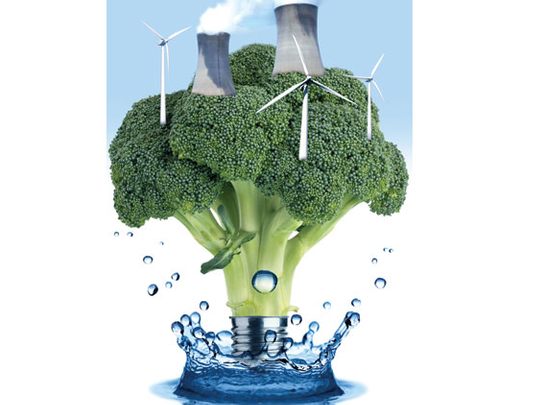
The Arab world is the most water scarce region on Earth. Annual per capita renewable resource is under 500 cubic metres in 70 per cent of the region and the average annual rainfall is below 250mm in 70 per cent of the region; it is less than 100mm in the GCC.
There is no doubt that water is essential for all forms of life. Besides its importance for maintaining healthy ecosystems, it is a fundamental resource for human survival and socio-economic development.
Water scarcity led many countries to fossil groundwater exploitation and sea water desalination, which involve high cost and adverse environmental impact. The major causes of increasing water demand include population growth and rapid urbanisation, besides wasteful consumption patterns in the domestic, industrial and agriculture sectors.
However, one must say that the problem is not only that of water security. It is more complicated due to the strong interlinkages between water, food and energy systems.
Water is needed for food (crops, fish) whether rain-fed, for irrigation, in catch fisheries or aquaculture. Also, water is needed to extract energy and generate power (hydro, coal, nuclear, biofuel). On the other hand, energy is needed to grow food (tillage, inputs), to treat, clean, distribute and transport water, to market and transport food products — energy is needed to build strong economies.
The water sector is becoming more energy-intensive; for instance, desalination and pumping deeper groundwater. On the other hand, the energy sector is becoming more water-intensive; for example, increasing use of water in mining fossil fuels and biomass.
The world’s growing population and increased prosperity will increase global demand for energy, as well as food and water supplies in the coming decades. This relationship between energy, water and food is appearing on the agendas of governments, NGOs and businesses. Cooperation between countries and regions; and various stakeholders, industries and sectors, will help address their complex relationship, known as the energy-water-food nexus.
There are a number of issues that the Arab world needs to overcome in order to address the water, food and energy nexus. The water, agriculture and energy policies are often in conflict. There must be a policy that takes into consideration the cross impact in these sectors. In addition, water and energy institutions, industries and markets are often disconnected. Also, there is limited accounting for water in the energy sector, despite it being a major user. Water footprint can play an important role in this regard.
Water footprint is an indicator of water use as a result of either production or consumption of goods and services. Water use is measured in terms of water volumes consumed (evaporated or otherwise not returned) or polluted per unit of time. The water footprint will help improve the sustainability, efficiency and equitability of water usage in various sectors, businesses, products, processes, and also in different nations, regions, river basins etc.
It is worth mentioning that there have been many initiatives to address the aforesaid water, food and energy problems. Some are very effective and play an important role in easing the problems. For instance:
1. Shifting towards utilising more renewable energy sources in the region, especially solar and wind power.
2. Revising and modernising water legislation and strengthening the mechanisms for its implementation.
3. Reforming of institutions, and legal reform programmes to overcome the fragmentation of responsibilities in the water, agriculture and energy sectors.
4. The use of economic incentives to encourage various consumers (household, commercial, industrial) to conserve water and power resources.
5. Programmes for public water and energy awareness that will encourage water and energy conservation.
6. Encouraging private sector role in constructing, operating and maintaining various water and energy projects.
7. Recycling of treated sewage wastewater for various applications.
The sad news is that, according to current climatic conditions and the available technology, the aforementioned initiatives will not achieve full water, food and energy security in the Arab world. They are definitely important and necessary, and will help ease the problems a little. However, these problems require new methods and innovative approaches in order to achieve water, food and energy security.
The concept of virtual water (also known as ‘embedded’ water) is very crucial in this regard. Virtual water is the amount of water used to produce a certain product, expressed in cubic metres.
So, the trade in virtual water refers to the hidden flow of water if food or other commodities are traded from one country to another. Thus Arab countries can save their scarce water resources by relying more on import of food that requires a lot of water to produce. They can even produce food products or commodities that are not needed for their local consumption as long as they have a comparative advantage in their production and then they can export these products to make sure they have enough revenues to import the water intensive products.
Water footprint and virtual water can allow Arab counties to know how best to allocate the scarce water available and trade in virtual water can help achieve water, food and energy security.
Dr Mohammad Abdel Raouf is an independent environmental researcher.









